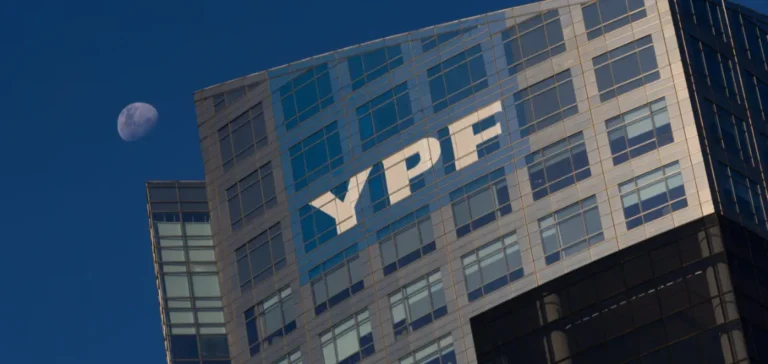The legal case brought against the Argentine state in the United States, following the 2012 nationalization of YPF, has taken a new turn. On August 15, 2025, the New York Court of Appeals granted a temporary suspension of a federal court order requiring the transfer of a majority stake in the state-controlled oil group Yacimientos Petrolíferos Fiscales (YPF) to two former shareholders.
The case stems from the partial expropriation of the company in 2012, when Spanish firm Repsol held a controlling interest. While Repsol received compensation amounting to five billion dollars in 2014, two other entities—Petersen Energia and Eton Park Capital—filed a lawsuit in 2015. These firms, which were not compensated, turned to the U.S. courts seeking redress for losses allegedly incurred during the nationalization.
A Court Decision with Significant Economic Ramifications
On June 30, 2025, federal judge Loretta Preska, sitting in Manhattan, ordered Argentina to transfer 51% of YPF’s shares to the two claimants. This order was issued in partial execution of a 2023 ruling that awarded over 16 billion dollars in damages. The decision was immediately contested by President Javier Milei, who declared his intention to appeal.
The appeals court’s suspension comes in this context, allowing the Argentine government to temporarily retain control of the company’s majority shareholding while the appeal is under review. The government regards this suspension as a strategic element in its defense, noting that it does not affect the ongoing appeal of the September 2023 ruling.
YPF at the Heart of a Longstanding Legal Dispute
Founded in 1922, YPF is a historic player in Argentina’s energy sector and is currently majority-owned by the state. Its privatization in the 1990s, followed by re-nationalization in 2012, led to tensions with several international investors. This case, seen as one of the most significant economic litigations involving Argentina in the U.S., highlights the risks tied to expropriations lacking compensatory agreements.
The judicial developments are closely monitored by markets due to the financial stakes involved and the potential impact on Argentina’s sovereign risk perception. The next phase will depend on the appeals court’s decision on the merits of the case, expected in the coming months.






















